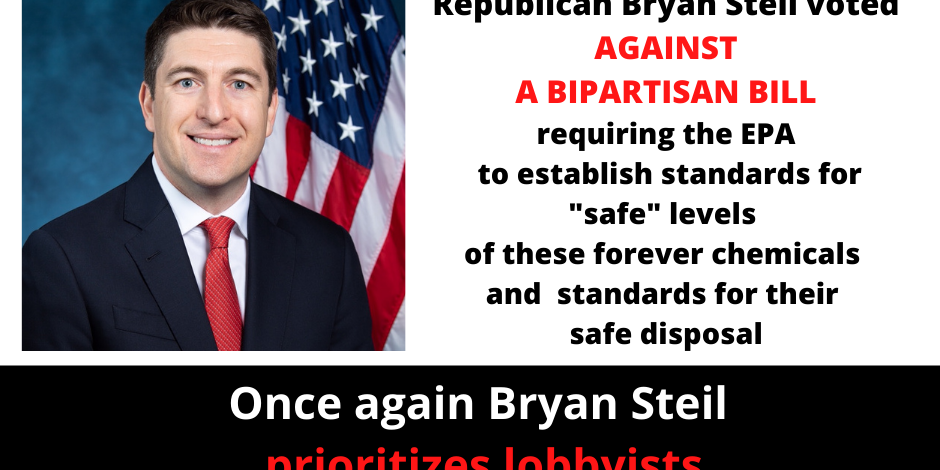Wisconsin has more than 50 cities that have discovered PFAS in their drinking water. There are areas in the state that are currently forced to use bottled water due to PFAS contamination.
PFAS compounds have been detected in Wisconsin drinking water at levels up to 1,900 parts per trillion (ppt) in some parts of the state, almost 100 times the proposed health-based standard of 20 ppt.
When it comes to drinking water contamination — the most significant source of human ingestion — there still are no legal limits on how much of these chemicals can be present in our drinking water.
House Bill H.R. 2467: the PFAS Action Act of 2021 would require the Environmental Protection Agency to designate these forever chemicals as hazardous substances and determine how much is too much in our air, soil and drinking water for public safety, which PFAS are the most dangerous and how to safely dispose of them.
It further provides a foundation for the EPA to mandate measures and controls of levels/types found in water systems to prevent wide spread consumption for those PFA’s found to be hazardous by the EPA.
The rational for a Nay vote is vacuous since this bill does not require the EPA to mandate controls/measures of PFA’s unless studies indicate that mandates are required.
This bill exemplifies the very kind of role that that the EPA was created for.
Health effects associated with excess PFAS include altered metabolism, fertility problems, reduced fetal growth, increased risk of being overweight or obese, and reduced ability of the immune system to fight infections.
The EPA Administrator would be required to establish a website with information relating to the testing of household well water, and to develop a risk-communication strategy to inform the public about the hazards of PFAS.
This legislation would make U.S. territories eligible for financial assistance designated for addressing emerging contaminants such as PFAS.
Yet Bryan Steil sided with corporate lobbyists and water utility companies and voted no on legislation that would help keep our water, soil and air safer from dangerous forever chemicals.
Sources:
House Vote on the PFAS Action Act of 2021
National Institute of Health: Perfluoroalkyl and Polyfluoroalkyl Substances (PFAS)
Minnesota among 13 states with high levels of risky chemicals in drinking water
